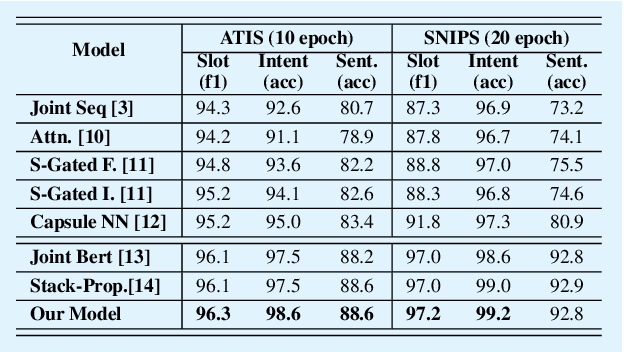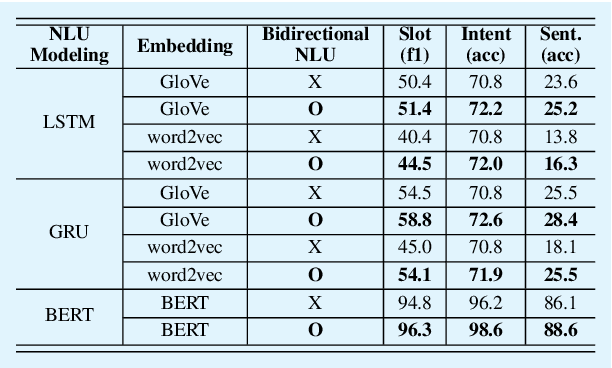Bi-directional Joint Neural Networks for Intent Classification and Slot Filling
Paper and Code
Feb 26, 2022


Intent classification and slot filling are two critical tasks for natural language understanding. Traditionally the two tasks proceeded independently. However, more recently joint models for intent classification and slot filling have achieved state-of-the-art performance, and have proved that there exists a strong relationship between the two tasks. In this paper, we propose a bi-directional joint model for intent classification and slot filling, which includes a multi-stage hierarchical process via BERT and bi-directional joint natural language understanding mechanisms, including intent2slot and slot2intent, to obtain mutual performance enhancement between intent classification and slot filling. The evaluations show that our model achieves state-of-the-art results on intent classification accuracy, slot filling F1, and significantly improves sentence-level semantic frame accuracy when applied to publicly available benchmark datasets, ATIS (88.6%) and SNIPS (92.8%).
 Add to Chrome
Add to Chrome Add to Firefox
Add to Firefox Add to Edge
Add to Edge